- Home
- Douglas Niles
MacArthur's War: A Novel of the Invasion of Japan
MacArthur's War: A Novel of the Invasion of Japan Read online
Praise for Fox on the Rhine and Fox at the Front
“The authors’ attention to military detail and maneuvers would satisfy any drill instructor, and they imbue even minor historical characters with authenticity and personality, demonstrating how an individual’s actions and reactions shape history. This is a thoroughly plausible what-if scenario, and as such will please and titillate alternate-history fans, WWII buffs, war gamers and others.”
—Publishers Weekly on Fox at the Front
“Outstanding … must-reading for imaginative WWII buffs.”
—Booklist on Fox at the Front
“For people who love history, written by people who know it well.”
—Larry Bond, New York Times
bestselling author
“An intriguing what-if scenario, and one that could have happened … Not since SS-GB, by Len Deighton, have I seen a more credible conclusion to WWII… the book is a triumph!”
—Walter J. Boyne, New York Times
bestselling author
“A colossal epic of a World War II that might have been … A real page-turner!”
—Frank Chadwick, New York Times
bestselling author
OTHER FORGE BOOKS BY
DOUGLAS NILES AND MICHAEL DOBSON
Fox on the Rhine
Fox at the Front
MACARTHUR’S
WAR
A NOVEL OF THE
INVASION OF JAPAN
DOUGLAS NILES
AND
MICHAEL DOBSON
A TOM DOHERTY ASSOCIATES BOOK
NEW YORK
The author and publisher have provided this e-book to you without Digital Rights Management software (DRM) applied so that you can enjoy reading it on your personal devices. This e-book is for your personal use only. You may not print or post this e-book, or make this e-book publicly available in any way. You may not copy, reproduce or upload this e-book, other than to read it on one of your personal devices.
Copyright infringement is against the law. If you believe the copy of this e-book you are reading infringes on the author’s copyright, please notify the publisher at: us.macmillanusa.com/piracy.
NOTE: If you purchased this book without a cover, you should be aware
that this book is stolen property. It was reported as “unsold and destroyed”
to the publisher, and neither the authors nor the publisher have received any
payment for this “stripped book.”
This is a work of fiction. All of the characters, organizations, and events
portrayed in this novel are either products of the authors’ imagination or are
used fictitiously.
MACARTHUR’S WAR: A NOVEL OF THE INVASION OF JAPAN
Copyright © 2007 by Douglas Niles and Michael Dobson
All rights reserved.
A Forge Book
Published by Tom Doherty Associates, LLC
175 Fifth Avenue
New York, NY 10010
www.tor-forge.com
Forge® is a registered trademark of Tom Doherty Associates, LLC.
ISBN-13: 978-0-7653-5142-5
ISBN-10: 0-7653-5142-0
First Edition: May 2007
First Mass Market Edition: July 2008
Printed in the United States of America
0 9 8 7 6 5 4 3 2 1
FOR OUR MOTHERS
Loella F. Niles
Barbara K. Dobson
Contents
Prologue
Part 1 - 1942: I Shall Return
Chapter One - Hawaii
Chapter Two - Philippines
Chapter Three - The Pacific; Washington. D.C.
Chapter Four - Australia; Tokyo; Hawaii
Chapter Five - Guadalcanal
Chapter Six - New Caledonia; Solomons
Chapter Seven - Pacific Ocean; Solomon Sea
Chapter Eight - The White House
Part 2 - 1943-1944: Eli, Eli, Lama Sabachthani
Chapter Nine - Arkansas; Philippines; Japan
Chapter Ten - Southern California; Hawaii
Chapter Eleven - Philippines; New Mexico, Japan
Chapter Twelve - Okinawa; Japan
Part 3 - 1945: Condition and Conquest
Chapter Thirteen - Okinawa; Tokyo; Hiroshima
Chapter Fourteen - Kyushu
Chapter Fifteen - Kyushu
Chapter Sixteen - Kyushu
Chapter Seventeen - Japan; Okinawa; Washington, D.C.
Chapter Eighteen - Western Pacific
Part 4 - June 1945-September 1945: Content and Circumstance
Chapter Nineteen - Philippines; Hiroshima, Japan
Chapter Twenty - Washington, DC; Southwest Pacific
Chapter Twenty-One - Western Pacific; Hiroshima
Chapter Twenty-Two - Honshu, Japan
Part 5 - September 1945: Endure the Unendurable
Chapter Twenty-Three - Honshu, Japan; Tokyo
Chapter Twenty-Four - Coast of Honshu; Tokyo
Chapter Twenty-Five - Northern Japan
Chapter Twenty-Six - Tokyo
Epilogue
Aftermath
Macarthur Loses!
Point of Historical Departure
Historical Notes
Acknowledgments
PROLOGUE
The Atlantic Monthly Vol. 251, No. 6, June 1964 issue
Would the United States Have Used the
Atomic Bomb Against Japan?
If the “Manhattan Project” had succeeded, the
United States would have been the first nation with the
A-bomb. Would we have used it to end World War II
instead of launching General MacArthur’s massive
invasion? Would it have worked? What would the
consequences have been?
The threat of atomic war was eliminated officially when the Geneva Convention of 1963 outlawed all nuclear weapons. Although no A-bomb had ever been used in war, the threat of massive “city-busting” attacks against civilians was so unthinkable that negotiators from all the Great Powers, including the USSR, agreed to ban these weapons.
It was 1956 when the Soviet Union detonated the first atomic bomb in the Siberian wastes, but we have only recently learned that the Russians were significantly aided by secrets stolen by spies from the ill-fated American laboratory in Los Alamos, New Mexico….
• TUESDAY, 9 JUNE 1942 •
HIROSHIMA, JAPAN, 1115 HOURS
Ogawa Michiyo was seventeen today, and her father had given her ten yen to spend in one of Hiroshima’s thriving outdoor markets. She had come to her favorite place, the square before the magnificent Aioi Bridge over the River Ota, to wander among the stalls. It was a beautiful day, warm enough for summer but still as green and lush as new spring. She looked at flowers, thought about a bit of sushi and rice, watched a vendor carve up an octopus, and gazed longingly at some startlingly vivid bolts of silk. She would have loved one of the latter, but they were too expensive, and besides, she was having too much fun browsing to stop and spend her money.
She glanced at the newspaper—the Asahi Shimbun was the most popular news source in Japan—to see a large, screaming headline.
COMBINED FLEET SINKS THREE AMERICAN
CARRIERS AT MIDWAY ISLAND
The story was full of announcements about a huge sea and air battle somewhere off near Hawaii, but Michiyo was more interested in the activity in this vibrant marketplace than she was in the story. For now she left the paper in its stand. Before she went back home she would buy one for Papa, who could never get enough news ab
out the war, but first she intended to enjoy the sights, sounds, smells, and tastes of this lively center of commerce.
Even as she breezily wandered, though, she sensed that there was something different about the recent battle. Men were speaking about it in unusually loud tones, some talking nonsense about invasions of Hawaii and California, others singing the praises of the Emperor and Admiral Yamamoto. Michiyo wondered why a victory was such big news. After all, Japan had won all the battles in this war! She had heard of the great Yamamoto-san, of course: he was the genius who had masterminded the attack on Pearl Harbor half a year earlier, and led the Imperial Japanese Navy across the whole of the vast Pacific, but those were all details about places that were very far away.
The market, on the other hand, was right here! She stopped to smell some chrysanthemums, surprised as always by the sour smell of such a sweet-looking blossom. On impulse she bought one to wear in her long, black hair. She was right at the bank of the river now, and she contemplated the surging power of the Ota, the blue-gray waters spilling from the mountains, hurrying toward the sea. It had always been so, even before the mighty bridge had been built. The river, like the Japanese Empire itself, was eternal.
She came to a vegetable vendor who was lining up beautiful cucumbers, radishes, and yams on his tray. When a young soldier came up, she moved to the side, glancing up at him—and then staring with a start of recognition.
Naguro Yoshi! He was her brother Taiki’s friend, some five years older than her, and she hadn’t since him since before the start of the war. An instinctive shyness held her tongue as she tried not to stare. Yoshi was inspecting the cucumbers very seriously, but she sensed that he would soon walk away. Could she be bold enough to speak to him?
Perhaps he would have news of Taiki! That was reason enough to free her tongue.
“Yoshi?” she said softly.
He turned to look at her, and she was prepared to explain how she knew him when he gladdened her heart by recognizing her and crying in delight, “Michiyo! Ogawa Michiyo! How are you?”
“I am well,” she replied, thinking that he looked very splendid in his uniform. “And how are you?”
His face fell. “The army is sending me to school,” he said. “In Tokyo. By the time I get my commission, this war will be over—and I will have missed it!”
“I am sure you will have a chance to fight!” she declared, surprising herself—and Yoshi—with her vehemence.
“Thank you for your confidence,” he said sincerely.
“Tell me—have you heard anything of Taiki?” she asked.
“Yes. He is being called a hero for his actions leading his platoon in Malaya. His men were among the first into Singapore! And he was promoted to captain, you probably know. He commands a company of veteran infantry. I saw him briefly in Manila, before they sent him to Rabaul.” Yoshi smiled. “He will make your father proud, too—he carries your family sword with him everywhere, does Taiki.”
“Yes, the cupboard in Papa’s study looks so empty with it gone. I hope the war ends and he comes back soon—” She caught herself. “But not before you get to lead your own men in battle!” she amended.
“Thanks for the thought,” Yoshi said, again wistful.
Michiyo was embarrassed, sure she had hurt his feelings. “It was nice to see you,” she said, bowing her head politely, feeling immense sympathy for him.
“And you, too!” he said brightly. “Very nice. Please—give your father and mother my regards.”
“I will do that,” she said.
His words, his obvious happiness at their chance meeting, heightened her celebratory mood. As she made her way along the bank of the river, she seemed to float over the ground, moving as lightly, as naturally, as the waters of the Ota making their way to the sea.
1942
I Shall Return
Dugout Doug MacArthur lies a-shakin’ on the Rock
Safe from all the bombers and from any sudden shock
Dugout Doug is eating of the best food on Bataan
And his troops go starving on …
Dugout Doug, come out from hiding
Dugout Doug, come out from hiding
Send to Franklin the glad tidings
That his troops go starving on!
—Sung by American infantrymen on Bataan
to the tune of “The Battle Hymn of the Republic”
ONE
Hawaii
• WEDNESDAY, 10 JUNE 1942 •
HICKAM FIELD, PEARL HARBOR, HAWAII, 1310 HOURS
The four-engine Douglas C-54 Skymaster transport plane emerged from the blazing tropical air, and for a brief instant it looked to the spy as if the plane was towing the sun across the sky like Apollo’s chariot. The spy, who was posing as a reporter, listened to his supposed peers.
One of the assembled photographers started to lift his camera but gave it up as hopeless. “That’s gotta be Mac’s plane,” he said, shaking his head.
A reporter standing next to him gave a single dry cough of a laugh. They had all been standing on the hot tarmac for nearly an hour. “You know the difference between Douglas MacArthur and God?”
“Naw. What?”
The reporter took another drag on his cigarette. “God doesn’t think he’s Douglas MacArthur.”
There wasn’t much laughter. Most of the press had long since heard that one, or some variation, and there wasn’t much energy left for laughing, anyway. The regular afternoon rain shower hadn’t come yet, and the normal flower-scented Hawaiian breeze had been hijacked by avgas and asphalt.
The C-54 descended, flying in a great circle over the harbor. The reporters and photographers, casual and friendly for the long and boring wait, now jockeyed and pushed for position. Notebooks and pens came out. Cigarettes were hastily finished and butts ground underfoot.
The spy stubbed out his cigarette and took out a notepad, too. He, too, was curious, though for different reasons.
“It’s showtime,” said the reporter who had compared MacArthur and God.
General Douglas MacArthur—the General to the people who worked for him and who had known him longest—looked through the windblasted and scratched port of the C-54. His chief of staff, General Richard Kerens Sutherland, sat across the aisle. The remaining passengers, all members of the “Bataan Gang,” as MacArthur’s inner circle was known, sat farther back.
“There’s the Arizona,” the General said, pointing. He spoke slowly, pensively. Sutherland could barely get a glimpse of the twisted hull and shattered deck of the battleship still resting on the muddy bottom of Pearl Harbor.
“You know, Dick,” MacArthur continued, “the men of Bataan were the only Americans who put up any sort of a decent fight against the Japanese, the only ones who slowed the Rising Sun during these terrible months. The men of Pearl Harbor were brave, perhaps as brave, but their battle lasted only an hour, and they had no success to show for their tragedy.
“The men of Bataan delayed the enemy’s advance for five months—and their suffering has yet to reach its end. Every day they suffer, MacArthur suffers with them.”
“I know, General.” Dick Sutherland nodded consolingly. As the plane leveled out for the landing approach, he walked to the back of the plane where a hook was fastened to the bulkhead. It held a coat hanger with MacArthur’s uniform jacket on it. Row after row of medals and ribbons were perfectly in place. Sutherland cradled the General’s barracks cap, old, faded, limp, in his other hand and carried both up the aisle to the waiting MacArthur.
MacArthur’s eyes scanned the rows of ribbons. “My Mexican Service Ribbon is missing. Where’s my Mexican Service Ribbon?” he demanded. “Dammit, Dick, I can’t go out in public with my Mexican Service Ribbon missing!”
Even on a nine-row ribbon bar, the gap made by the missing ribbon was obvious. Sutherland blanched. Normally the duty of fetching the General’s jacket and making sure his ribbons were in order would have been performed by an aide-de-camp, but Sutherland rarely gave aw
ay a moment of face-to-face time with the boss. He was going to be the Indispensable Man at all times, no matter what it took. “General, I made personally sure all the decorations were here. Give me one minute, sir.” Sutherland began looking wildly around.
“Dick, Douglas MacArthur must have his Mexican Service Ribbon, do you understand?”
“Yes, sir. Absolutely.”
Sutherland looked around frantically, then started moving toward the rear of the Skymaster. “The General’s jacket is missing his Mexican Service Ribbon,” he announced.
Everyone stopped what he was doing to help in the search. It was Willoughby—it had to be Willoughby, Sutherland’s rival—who found it. “I’ve found it, General!” he announced loudly to MacArthur, rather than giving it to Sutherland. Willoughby’s accent was German.
“Good man, Sir Charles,” came MacArthur’s sonorous voice. “MacArthur is grateful.”
Sutherland’s eyes narrowed. I bet the bastard stole it in the first place.
With a smug grin, Willoughby gave the green, blue, and gold ribbon to Sutherland, who trotted it back to MacArthur and quickly slid the missing ribbon back onto the ribbon bar, ears burning all the while.
As the passengers belted themselves in for landing, MacArthur took one last look out of the scratched and milky window. Far below, the Arizona rested in her watery grave.
As the Skymaster touched down on the long bomber runway at Hickam Field, the reporters started jostling again. The photographers in the front rank crouched on one or both knees, some snapping telephoto shots of the nose art: the word Bataan painted in large letters. That wasn’t the name of this particular Skymaster. It was the name of any aircraft carrying Douglas MacArthur.
The transport taxied past the roped press area and swung around again, slowing. The immense roar of the four Pratt & Whitney engines drowned out all other island sounds as the flight line captain waved the C-54 to its designated parking spot and signaled “Cut.” The engine noise began to the down as other ground personnel chocked the wheels. The army honor guard and the band both lined up.

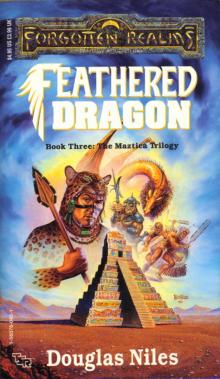 Feathered Dragon mt-3
Feathered Dragon mt-3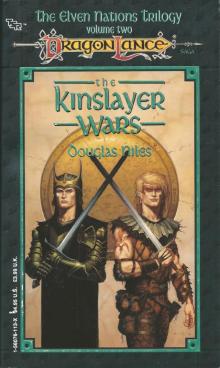 The Kinslayer Wars
The Kinslayer Wars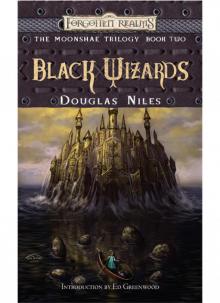 Black Wizards
Black Wizards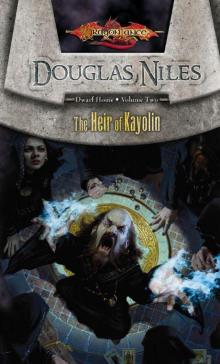 The Heir of Kayolin dh-2
The Heir of Kayolin dh-2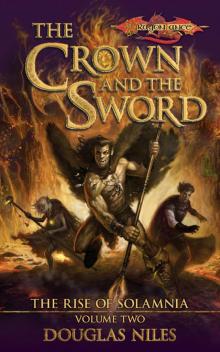 The Crown and the Sword tros-2
The Crown and the Sword tros-2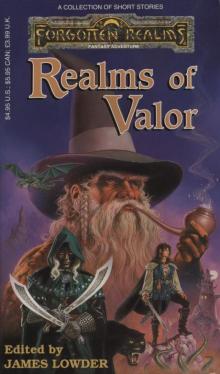 Realms of Valor a-1
Realms of Valor a-1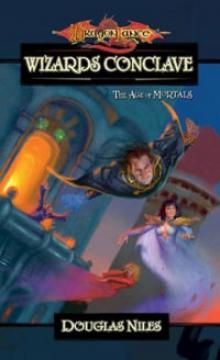 Wizards Conclave aom-5
Wizards Conclave aom-5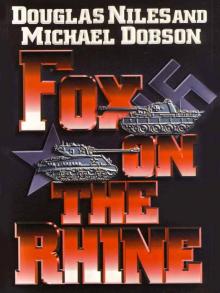 Fox On The Rhine
Fox On The Rhine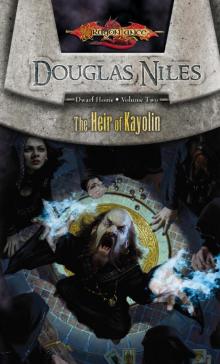 The Heir of Kayolin
The Heir of Kayolin Fox at the Front (Fox on the Rhine)
Fox at the Front (Fox on the Rhine)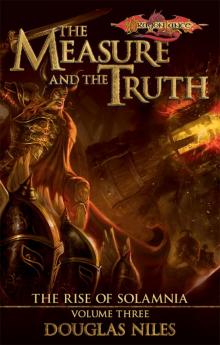 Measure and the Truth tros-3
Measure and the Truth tros-3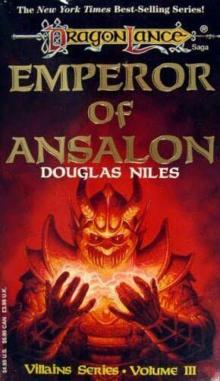 Emperor of Ansalon (d-3)
Emperor of Ansalon (d-3)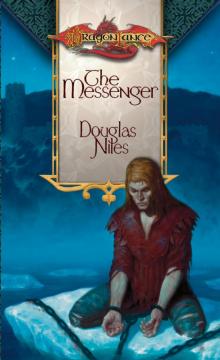 The Messenger it-1
The Messenger it-1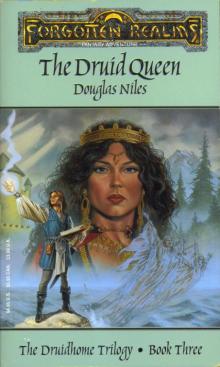 The Druid Queen tdt-3
The Druid Queen tdt-3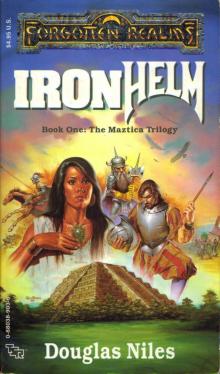 Ironhelm mt-1
Ironhelm mt-1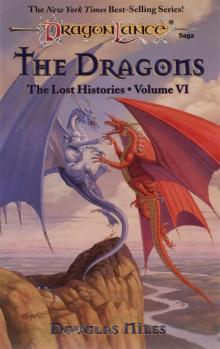 The Dragons lh-6
The Dragons lh-6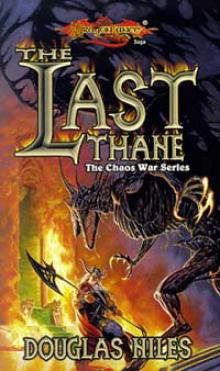 The Last Thane cw-1
The Last Thane cw-1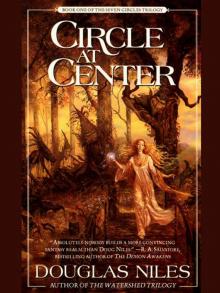 Circle at center sc-1
Circle at center sc-1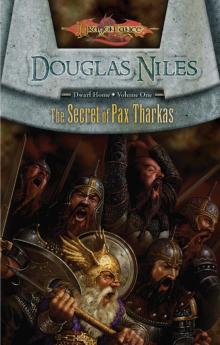 Secret of Pax Tharkas dh-1
Secret of Pax Tharkas dh-1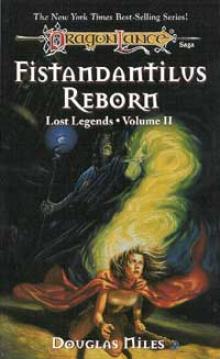 Fistanadantilus Reborn ll-2
Fistanadantilus Reborn ll-2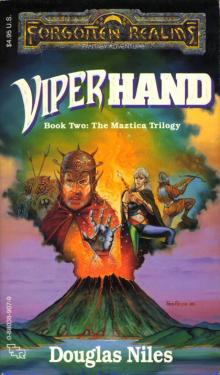 Viperhand mt-2
Viperhand mt-2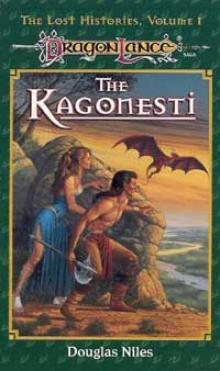 Kagonesti lh-1
Kagonesti lh-1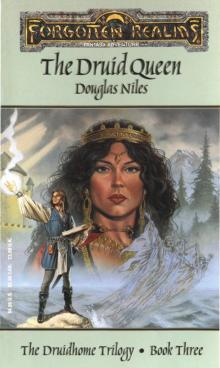 The Druid Queen
The Druid Queen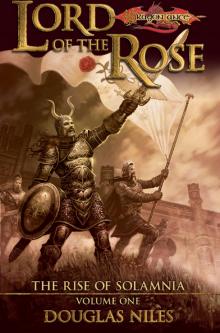 Lord of the Rose tros-1
Lord of the Rose tros-1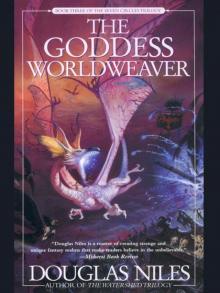 Goddess Worldweaver sc-3
Goddess Worldweaver sc-3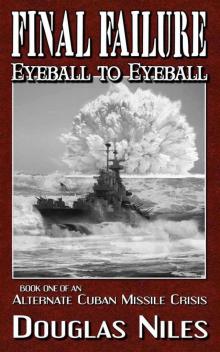 Eyeball to Eyeball (Final Failure)
Eyeball to Eyeball (Final Failure)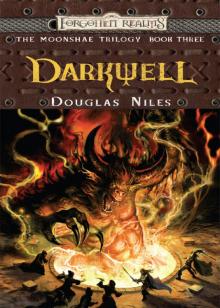 Darkwell
Darkwell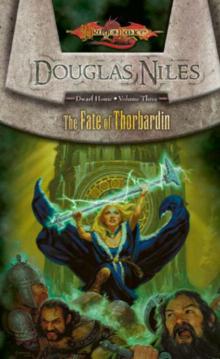 Fate of Thorbardin dh-3
Fate of Thorbardin dh-3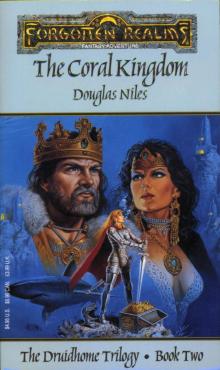 The Coral Kingdom tdt-2
The Coral Kingdom tdt-2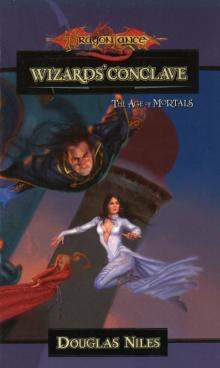 Wizard's Conclave
Wizard's Conclave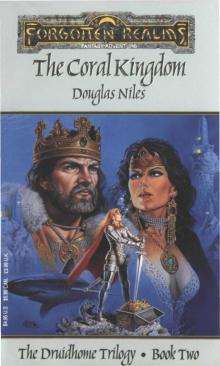 The Coral Kingdom
The Coral Kingdom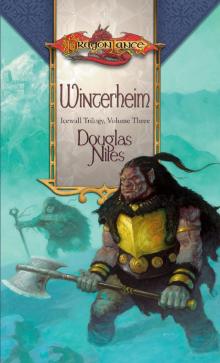 Winterheim it-3
Winterheim it-3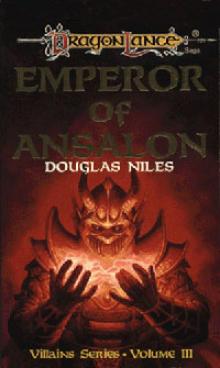 Emperor of Ansalon v-3
Emperor of Ansalon v-3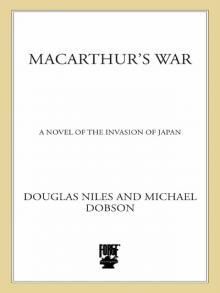 MacArthur's War: A Novel of the Invasion of Japan
MacArthur's War: A Novel of the Invasion of Japan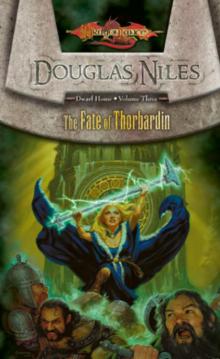 The Fate of Thorbardin
The Fate of Thorbardin The Rod of Seven Parts
The Rod of Seven Parts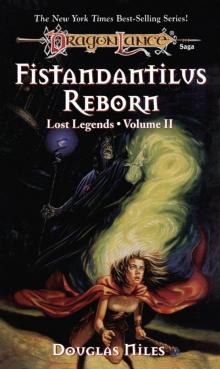 Fistandantilus Reborn
Fistandantilus Reborn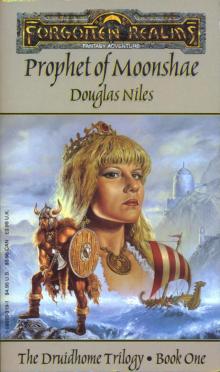 Prophet of Moonshae tdt-1
Prophet of Moonshae tdt-1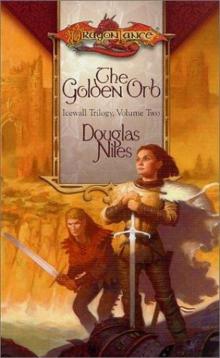 The Golden Orb i-2
The Golden Orb i-2